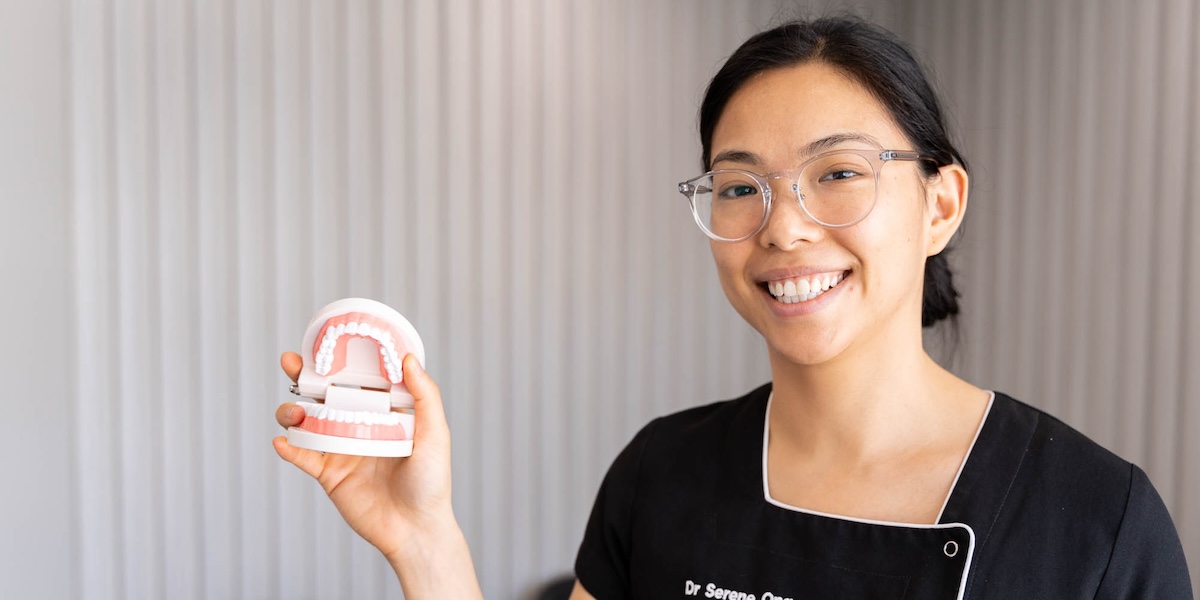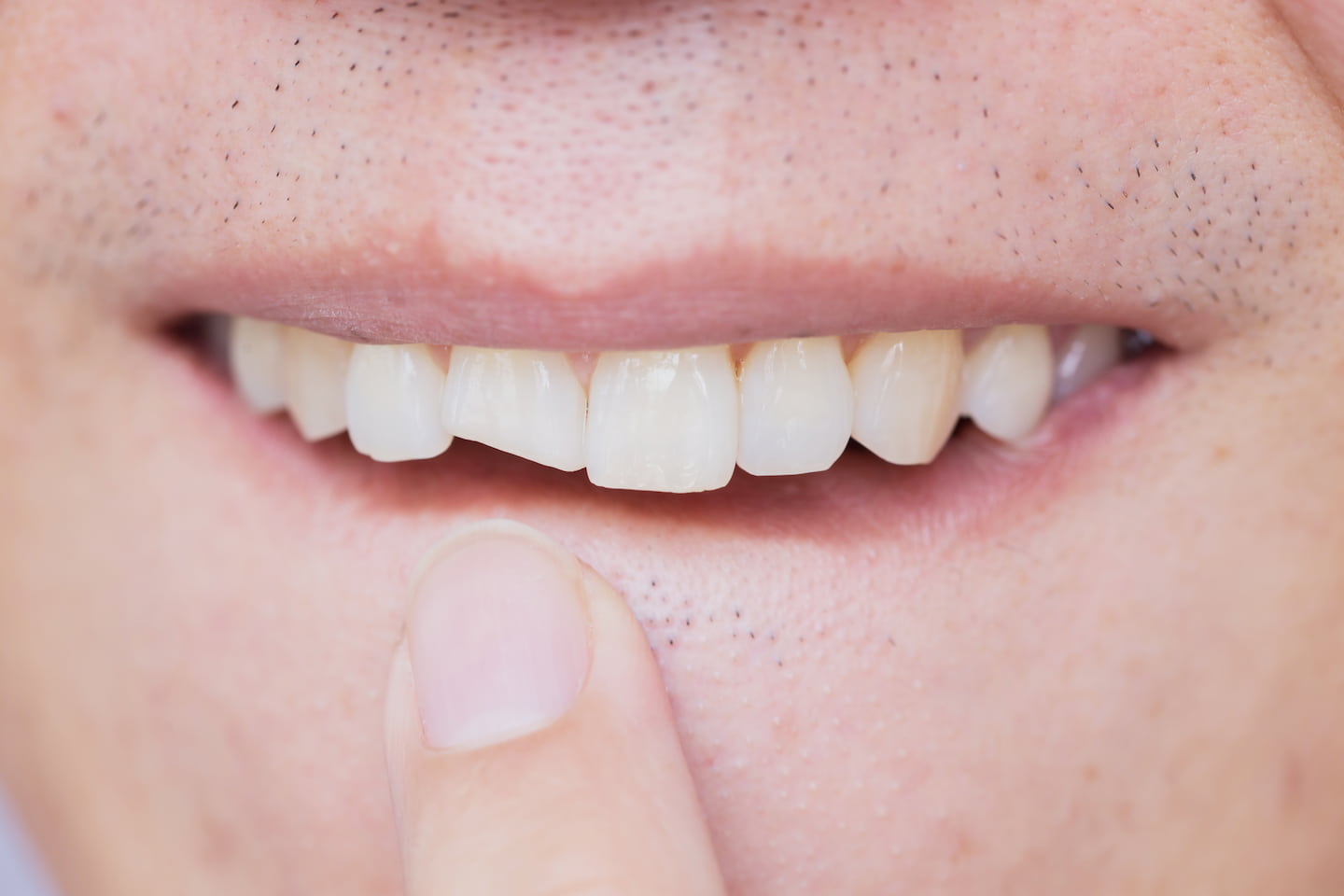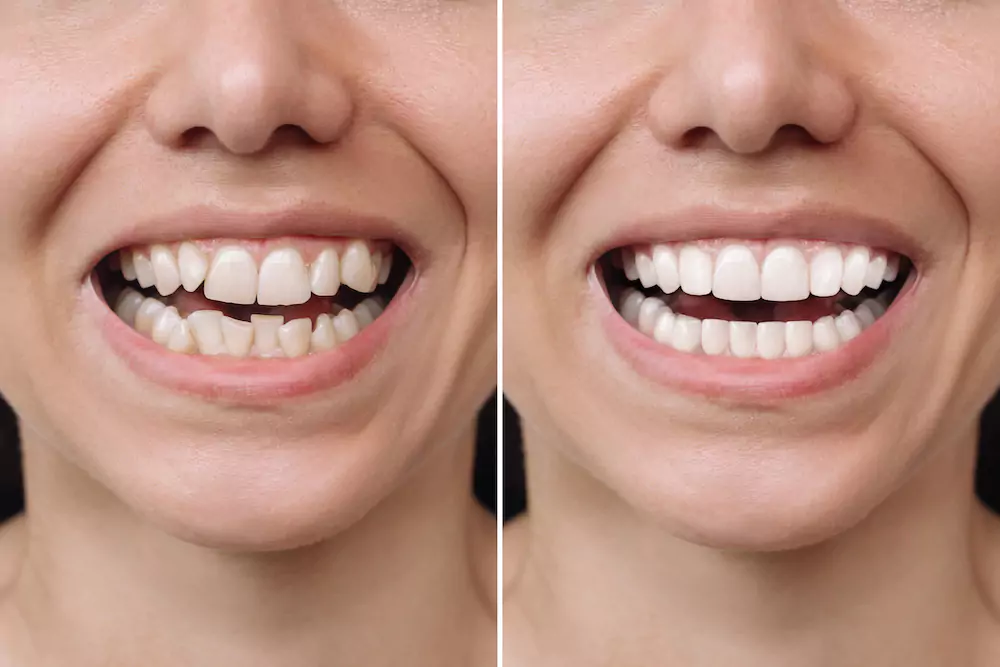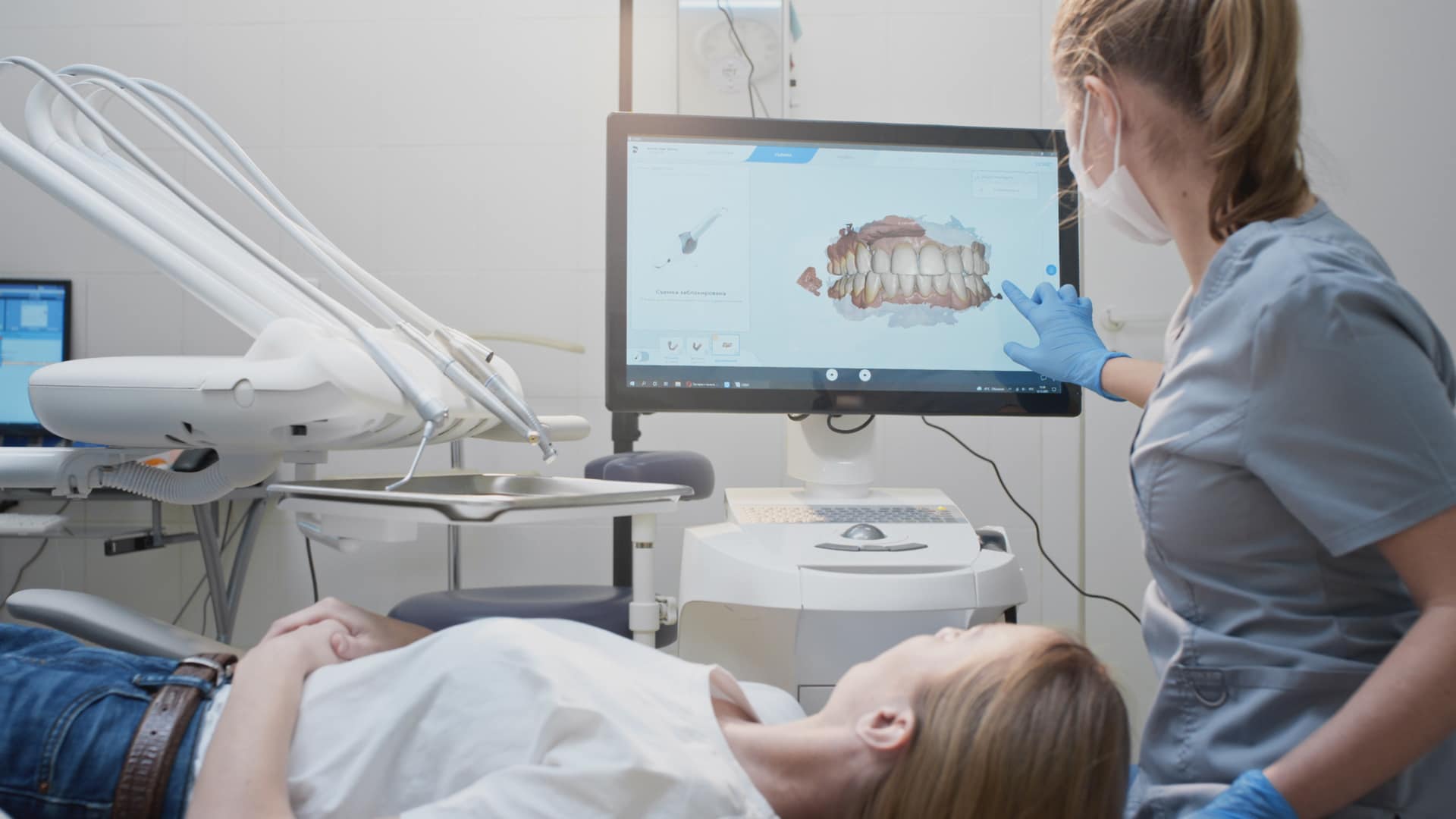
Denture Cleaning: How to Clean Dentures in 4 Easy Steps
Denture cleaning involves many of the same steps as natural teeth, such as a good oral health routine and regular dental checkups.
If you are wondering, “How should I clean and maintain my dentures?”, I put together this guide to keeping your dentures clean and bright.
If you would like personalised advice on caring for your dentures, I’d be happy to meet with you! Schedule a dentures consultation for individualised denture cleaning advice and I’ll help you keep your dentures clean, bright, and fitting well for as long as possible.
Quick Summary
- Denture cleaning is similar to caring for natural teeth
- Dentures require daily cleaning and maintenance to prevent issues such as inflammation, gum disease, staining, and infection
- Avoid hard-bristled toothbrushes, hot water, and aggressive brushing to prevent damage to your dentures
- Seeing a dentist for regular checkups with dentures is just as important as regular dental checkups for natural teeth
- Attending regular dental checkups ensures any issues are caught and addressed early
- If you experience denture discomfort, staining, loose-fitting dentures, or need denture repair, schedule an appointment with your dentist right away
How to Clean Dentures
Caring for dentures is similar to cleaning and maintaining your natural teeth. Practicing good oral hygiene with dentures helps prevent staining, inflammation, infection, and gum disease.
Here are the basics steps of how to clean dentures at home:
- Rinse dentures after every meal
- Brush dentures at least once a day
- Soak dentures daily in a denture-specific solution
- See your dentist for regular checkups
How to Maintain Your Dentures
1. Rinsing
Rinsing is one of the most important aspects of denture cleaning. I recommend warm water for rinsing dentures as it is effective and readily available.
Rinsing removes food debris and helps wash away bacteria to keep your gums and remaining teeth healthy and prevent denture staining.
2. Brushing
Dentures need to be brushed daily, just like natural teeth. This helps prevent stains, remove bacteria, and prevent build-up.
Dentures need to be brushed and handled with care to avoid damage. Use a mild hand soap and gentle circular motions to brush your dentures.
Do not use toothpaste on your denture as it contains abrasives that can make the acrylic on your denture wear faster and create small porosities in your denture that result in them staining more quickly. It is prudent to keep the brush you use to clean your denture separate from the brush that you use to clean your teeth as there may be toothpaste residue on the brush.
I recommend lining the sink with a towel or filling it with water to help prevent damage if you drop your dentures while brushing them.
3. Soaking
Soaking dentures regularly helps remove build up and bacteria. I recommend buying either a specific denture soaking solution, or soaking using a non-staining 0.12% chlorhexidine (Curasept ADS Mouthwash) for 10 minutes, for best results.
4. Regular Dental Check-Ups
Regular dental checkups are one of the most important steps in maintaining dentures or natural teeth.
At a general dental checkup for dentures, your dentist will educate you on how best to maintain your dentures and ensure:
- Your remaining teeth are healthy
- Your gums and soft-tissues are healthy
- Your dentures are functioning properly and fitting as they should
- You do not have any sore spots
- Your dentures are not damaged
- There are no signs of decay, gum disease, infection, or inflammation
Learn More: The Importance of Regular Dental Checkups
How to Clean Dentures Stains
Dentures can become discoloured and stained, just like natural teeth. However, dentures do not respond to whitening solutions like natural teeth.
If your dentures are stained, the acrylic material will not respond to homemade denture whitening solutions or aggressive scrubbing.
Instead, continue with a good oral hygiene routine and soak your dentures every night.
For stubborn dentures stains, your dentist will need to create a new denture.
If your denture is covered in mineral build-up, your dentist may be able to clean it for you.
What to Avoid When Cleaning Dentures
Here are some of the common mistakes I see regarding denture cleaning and what I tell my patients to avoid:
- Do not use abrasive cleaners or toothpaste for denture cleaning
- Do not use hot or boiling water as it can warp and weaken the dentures
- Never set dentures on the edge of a counter when they are out of your mouth (set them in a protective container)
- Avoid hard-bristled toothbrushes or aggressive brushing techniques
- Do not use whitening toothpaste or whitening products on dentures
- Do not leave dentures in overnight
- Don’t forget to brush your remaining natural teeth
How to Manage Sore Spots
Poorly fitting dentures can lead to irritation and sore spots. If you notice a sore spot, schedule an appointment with your dentist right away.
The dentures may have lost their shape and may require an adjustment. If the dentures are 5 years or older, a replacement may be needed.
Until you can see a dentist for the sore spot, try removing your dentures until the sore spot is healed and rinsing your mouth with a solution of warm water and salt.
To learn more about how dentures should fit, read my guide here: Good vs. Bad Dentures
FAQs
Do dentures need to be cleaned every night?
Yes, I recommend cleaning dentures every night. During the day, dentures can accumulate food debris, bacteria, and plaque — just like regular teeth.
Since dentures sit directly on your gums, bacteria can build up between the gumline if dentures aren’t cleaned regularly. This can lead to gum irritation, decay, stains, or infection of your remaining teeth.
Is it ok to sleep with dentures?
I advise my patients to take their dentures out at night. This gives the gums a break and decreases the risk of gum irritation.
Remember to soak your dentures regularly to give them a thorough clean. Unless your dentist advises you to leave dentures in, always take them out and soak them overnight.
How long can I leave my dentures in?
Wearing dentures 24 hours a day puts you at risk of oral health problems, such as fungal infections, bacterial buildup, inflammation, and gum disease.
It is recommended to remove your dentures at night to give your gums a rest and prevent oral health issues.
Can I use mouthwash with dentures?
Yes, you can use mouthwash with dentures. A 10 minute soak in 0.12% chlorhexidine mouthwash is effective at killing bacteria. Most chlorhexidine mouthwashes can stain dentures, so choose a chlorhexidine mouthwash that does not such as Curasept ADS Mouthwash.
What should I do if my denture has a soft lining?
If your dentures have a special soft lining, it is especially important to pay close attention to the products you use. Certain cleaning products can damage the soft lining.
Follow the manufacturer’s instructions closely and double check with your dentist for personalised denture cleaning recommendations.
Should I remove my dentures at night?
Yes, I recommend removing your dentures at night. The gums benefit from a six to eight-hour rest every day, making sleep the perfect time to give your mouth a break from dentures.
Benefits of removing dentures at night include:
- Decreases susceptibility to gum irritation
- Allows for soaking time to remove bacteria
- Enables the saliva to flush away food debris
- Helps prevent gum disease, tooth decay and other oral health issues
What can I do about denture staining?
Here are some tips I recommend to preventing and treating denture stains:
- Soak dentures every night
- Avoid cigarettes or tobacco products
- Avoid or limit your consumption of highly pigmented foods and beverages, such as red wine and coffee
- Rinse your dentures after consuming foods or drinks that are known to cause stains
- See your dentist for assistance with stubborn denture stains
Do I still need to see the dentist about my dentures?
Even if your dentures are comfortable and you are not experiencing problems, regular dental checkups are still important. Seeing your dentist for regular checkups ensures any issues are caught and addressed early.
Along with evaluating your teeth, dentists also check to make sure the tongue and cheeks are healthy and that your dentures still fit properly.
Conclusion
Regular dental checkups, daily cleaning, and using the right products are crucial parts of cleaning and maintaining dentures.
For over 10 years, I’ve helped patients enjoy bright, well-fitting dentures that allow them to chew and speak normally while confidently going about their lives.
Book your denture appointment today for personalised advise and professional denture care.



